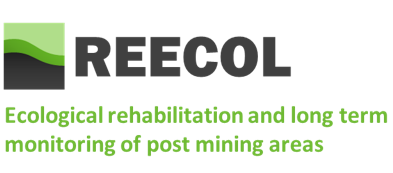The REECOL project gathers eleven partners representing research institutions and industrial companies
from five European countries.
Coordinator:
- „Poltegor – Instytut”, Instytut Górnictwa Odkrywkowego – PL – Poland
Participants:
- Výzkumný ústav pro hnědé uhlí a.s. – CZ – Czech Republic
- Główny Instytut Górnictwa – Państwowy Instytut Badawczy – PL – Poland
- Bureau de Recherches Géologiques et Minières – FR – France
- Institut national de l’environnement industriel et des risques – FR – France
- Instytut Techniki Górniczej KOMAG – PL – Poland
- Dimosia Epicheirisi Ilektrismou AE – EL – Greece
- VALORHIZ SAS – FR – France
- Polska Grupa Górnicza SA – PL – Poland
- Premogovnik Velenje, d.d. – SI – Slovenia
- Polytechneio Kritis – EL – Greece
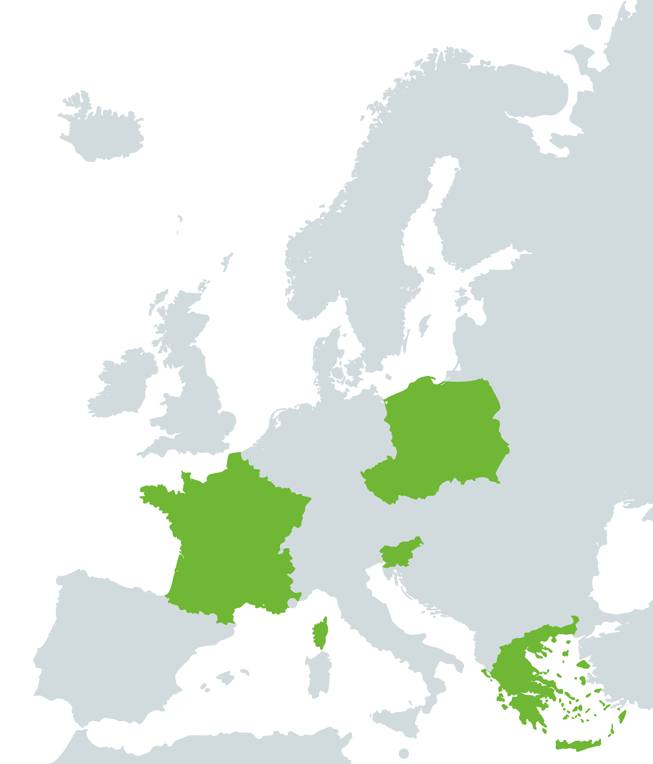

Poltegor-Institute is a Polish research organization with over 70 years’ experience in the field of opencast mining research and development. The organization focuses on creating environmentally friendly technologies for mining and reclamation. With a staff of nearly 50, including researchers and engineers, the Institute operates in 6 departments and 10 laboratories.
The Institute specializes in geological, geotechnical, and environmental research, primarily in mining and reclamation. It also works on renewable energy sources and energy efficiency. Collaborations with opencast mines across Poland and Europe are part of its operations.
Research at Poltegor-Institute includes remediation of areas impacted by mining. This involves studying pollutants, their effects on water and soil, and developing methods for water quality improvement and waste material stabilization. The Institute also conducts research on soil fertility, focusing on soil improvers made from charcoal, biochar, rock dust, and dolomite.
Poltegor-Institute participates in various national and international research projects, contributing to advancements in mining, reclamation, and environmental technologies.

[GIG] The Central Mining Institute – National Research Institute (GIG-PIB) is one of the most important Polish research institutions, working for mining, energy, and many other industries, including small and medium-sized enterprises, state and local government institutions and offices, and foreign partners. GIG-PIB’s activities are primarily focused on implementing the principles of sustainable development in the area of energy and the use of renewable energy sources and other alternative technologies, especially in the area of clean coal technologies. These issues are handled by two research centers established in GIG-PIB. The first, the Centre for Climate Research and Renewable Energy Sources, carries out interdisciplinary researches, analyses, studies and measurements related to the reduction of greenhouse gas emissions. The second, the Center for Environmental Engineering, conducts comprehensive R&D and service works in the areas of environmental engineering and green economy. GIG-PIB’s research includes detailed analyses of specific environmental elements, such as soil, water, sewage and sludge as well as monitoring of degraded post-industrial areas, studies of agri-food products and ecosystem services evaluation.

[KOMAG] Institute of Mining Technology KOMAG is a state owned research and development institute being an active player in the European Research Area. The KOMAG’s scope of activities includes research and development in the domain of minerals mining and processing as well as environmental protection, air and ground surface protection, waste management as well as adaptation of the research results for a practical implementation and dissemination to other natural and technical sciences. KOMAG’s staff versatile competencies enable them to carry out activities also beyond the above mentioned areas, which is reflected by a variety of national and European project they have been or are participating, also as the coordinator.
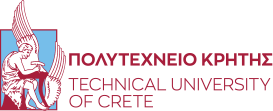
[TUC] The Technical University of Crete is a small, young, dynamic university. More than 70 laboratories with prime equipment, high technology infrastructure and eminently qualified personnel, as well as 120 faculty and staff members with international academic background attest to the level of excellence in education and research conducted at the University. These rank TUC amongst the most prominent research institutions in Greece. Varied competencies of TUC are reflected by profiles of five engineering schools, the university consists of: 1) School of Production Engineering and Management (PEM), http://www.pem.tuc.gr/; 2) School of Mineral Resources Engineering (MRED), http://www.mred.tuc.gr/; 3) School of Electrical and Computer Engineering (ECE), http://www.ece.tuc.gr/; 4) School of Chemical and Environmental Engineering (CHENVENG), http://www.chenveng.tuc.gr/; 5) School of Architecture (ARCH), http://www.arch.tuc.gr/. TUC has coordinated and participated in many national and EU research programs – among others Horizon 2020, RFCS, LIFE-environment programs, FP5 and FP6 and FP7 programs.
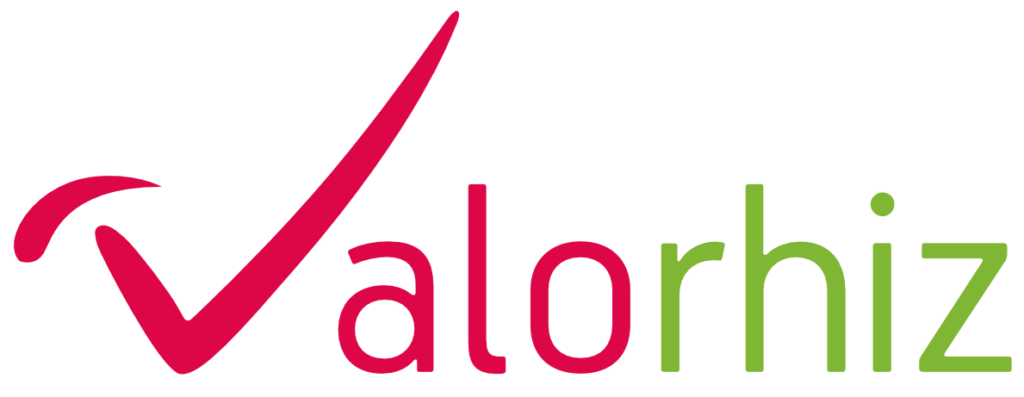
Valorhiz specializes in design, supply and implementation of innovative technical solutions for soil functional diagnostics, soil biological treatments and the soil monitoring. They have also a strong experience in design, building, implementation and monitoring of strategies related to ecological restoration and ecological landscaping, including value chain studies for horticulture and ecology and business plan development in nature-based sectors. Valorhiz has an innovative multidisciplinary skilled team, with competencies applicable for activities related with: agronomy; conservation and management of natural resources; identifying protected areas or conservation areas which receive protection because of their recognized natural, ecological or cultural values ; soil restoration and bio-technosols® building, using NBS and maximising the valorisation within circular economy (TerraGenese®); implementation and management of ecological restoration programs around the world; botanic and ecological survey; combining bottom approaches (from soil, rhizhosphere, plants, etc… to landscape and territory) and up-down using IA for treatment of airborne images (https://cassia-technologies.com/); ecological diagnoses and conception of innovative ecological rehabilitation/landscaping projects in various contexts, including arid ones; training and capacity building for local communities regarding biodiversity conservation and its monitoring methods.
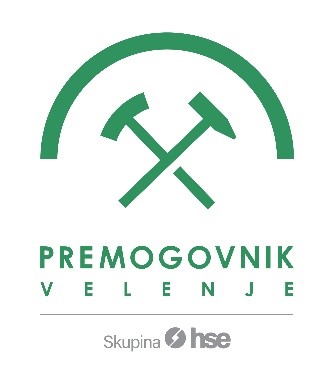
[PV] Premogovnik Valenje, d.o.o (the Velenje Coal Mine, Slovenia) is a technologically advanced company with lignite mining as its primary activity. With an almost 150-year tradition in lignite mining, it is firmly rooted in the Slovenian energy economics. The company operates in accordance with the principles of sustainable development, in accordance with the quality management system, the environmental management system and the occupational health and safety system. Today, together with affiliated companies, it employs 2000 qualified staff.
With underground longwall mining method, Velenje Coal Mine is causing subsidence of the surface above mine pits. The influence area of mining in the exploitation area of Velenje Coal Mine is subject to constant changes of the surface. Surface movements and deformations are observed on over 300 measurement points in mining area and its vicinity using mine surveying monitoring system including tachymetry, geometrical levelling, GNSS, airborne LIDAR scanning, TLS and aerial photogrammetry.
PV is also a research organization and is working very closely with various universities and research institutions. Company has participated in several EU funded research projects. In the industrial environment of the Šaleška valley, on reclamation areas, company create grounds for the implementation of various activities, including tourist ones.
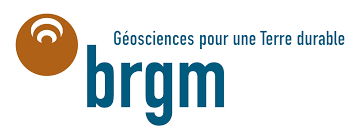
[BRGM] The French Geological Survey is the leading public institution in the field of Earth Science in France. Its main mission is to develop and improve methodologies and techniques for the management of surface and subsurface resources, through technological research and development and innovation, support to public policies and citizen information, international cooperation and development aid, and safety and monitoring of former mining sites.
BRGM employs more than 1000 people, including more than 700 researchers and engineers in geology, hydrogeology, geochemistry, modelling, geophysics, geo-microbiology and biotechnologies applied to ores, wastes and polluted waters, implementing projects in more than 30 countries. The expertise of BRGM covers several domains addressed by REECOL: post-mining, environment, water, biotechnologies and microbiology. BRGM teams gather complementary experts whose skills have allowed the development of methodologies to measure soil ecological functions during rehabilitation schemes. BRGM has extensive experimental facilities to support its R&D activities, from the scale of microbiology and molecular biology laboratory to that of large pilot plants and on-site pilots. Fully equipped analytical laboratories are also available. BRGM maintains a wide variety of general chemistry and biology laboratories and workshops ideal for the varied work in the research, development, prototyping, bioreactor design, testing and demonstration of new technologies.
